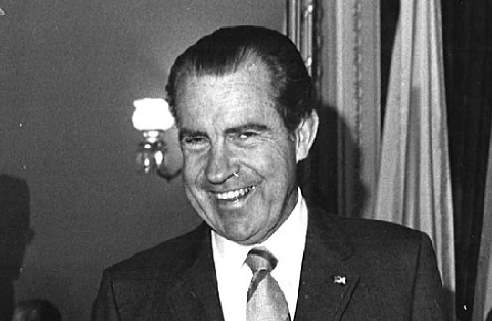Do you remember the days of Richard Nixon? Today’s newsletter describes the creative experiences of actor Frank Langella — who’s currently starring in a movie as the former president — and translates his thoughts into writing advice.
I was in high school when former U.S. president Richard Nixon resigned. I don’t remember seeing him give his official TV farewell, but I strongly recall his gravelly voice, his pursed lips and his shuffling gait. I devoured All the President’s Men when it was published in 1974 and saw the movie starring Robert Redford and Dustin Hoffman as reporters Woodward and Bernstein when it was released two years later.
This fall, as a kind of middle-aged throwback, I raced to the Nixon/Frost play by British dramatist Peter Morgan, when it appeared in Vancouver. Then, over the Christmas holidays, I dragged my husband to see the movie of the same name starring Frank Langella.
It astonished me how the excellent play was fully supplanted by an outstanding movie. If you have any interest in Nixon or in politics — or in showmanship acting — be sure to see it yourself. In the first few minutes, I held a few uncertainties about Langella, but by about the 10th minute, he had me by the throat. The 70-year-old actor, who became moderately famous through Diary of a Mad Housewife and Dracula films has turned into a possible Oscar nominee.
My Langella love-fest subsequently caused my eyes to rest on a blurb about him in this month’s Vanity Fair (the one with Tina Fey on the cover). In it, Langella speculates on the reasons for Nixon’s downfall, saying intuitively, “he seemed to wear outside his clothes the worst in all our natures — not only the venal side, where you see the evil, but the frightened, sad, loner side that all of us have, whatever we present to the world.”
Langella, who teaches master classes for actors, then went on to add a more personal and even more interesting digression. “When I do master classes,” he said, “what I say is: ‘Never give in. Try with every fiber of your being to push past your window of terror.'”
This phrase “window of terror” struck me as particularly apt for any creative pursuit — not just acting, but also, writing. After all, who can write without feeling a little knife of fear slice through the heart? Is my writing good enough? Is it interesting enough? Will it appeal to enough readers? If you’re a copywriter you may also worry whether your material will actually sell enough stuff to justify your wage.
But the bald fact is that terror should not come with the writing. After all, writing is simply putting words on paper, which is an easy enough job. The reason we’re stalked by terror, is because many of us start editing (a harder task) while trying to write. Or, worse, we try to imagine where our work will be published and what others will think of it.
The secret to writing quickly and effectively is to remember that writing is writing. All that other stuff — the editing, the marketing, the worrying — needs to come later.
Keep this rule in mind and you will not suffer the same fate as Richard Nixon.

